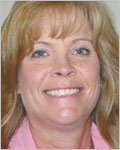Their Rookie Season Coaching tips from three BIZ Experiencess who made the first-year cut
By Fawn Fitter
Opinions expressed by BIZ Experiences contributors are their own.
Everyone says surviving the first year in business is the hardest. Actually, the odds are in your favor--even though conventional wisdom would suggest that most companies fail in their first 12 months. In fact, seven out of 10 small businesses make it to the age of 2, and roughly half make it to five years or more, according to the U.S. Census Bureau's department of Business Dynamics Statistics. Still, it's rough out there, and all the stats in the world can't prepare you for BIZ Experiencesial hardball. You have a lot to learn, and you don't know what you don't know. But like any rookie, you can study the players who came before you and benefit from their experience. To help, we've asked three successful small-business founders in different parts of the country, and in very different fields, to share the lessons of their own rookie year.
The Players:
 Lisa Johnson
Lisa Johnson
owner
Modern Pilates
Brookline, Mass.
Founded in:1999
Employees:22
Projected 2010 revenue: $535,000
A Pilates studio that just opened its fourth location in suburban Boston.
 Eileen Hassi
Eileen Hassi
owner
Ritual Coffee Roasters
San Francisco
Founded in:2005
Employees:42
Projected 2010 revenue:$2.4 million
A coffee roastery that sells beans wholesale and retail and operates two cafes.
 Laura Buckley
Laura Buckley
co-founder, president and chief operating officer
STORServer
Colorado Springs, Colo.
Founded in:1995
Employees:40
Projected 2010 revenue:$10 million
A technology company specializing in hardware and software to back up, archive and recover data.
<insert ad here>
The Pointers:
Think creatively about financing. At a time when banks are less likely than ever to lend to first-time BIZ Experiencess, be prepared to find alternative ways to prime the financial pump. Hassi borrowed from friends and family after several banks rejected her loan application. Johnson went directly to family members, suspecting she had no chance of getting a loan. Buckley says she and her co-founders "sold [their] time to fund [their] product" by taking on outside consulting projects.
Take full advantage of available resources.The U.S. Small Business Administration, many state and local governments, and even some public and private universities offer resources for BIZ Experiencess at no or low cost�--and, of course, your local library is a treasure trove of free information. "I didn't realize how much help I was eligible for or how much easier life would have been had I known," Hassi says.
Identify your value proposition.Johnson found most Pilates studios serious to the point of being intimidating. She deliberately chose the opposite approach. By presenting herself and her studio as laid back, casual and upbeat, she attracted clients who otherwise might never have tried Pilates at all.
Develop a solid business plan and stick to it."I knew what the numbers had to be, and I was a hands-on owner who was always around to make sure things ran exactly as I wanted them," Hassi says. After two years, she felt confident enough to take a 10-day vacation, out of cell phone range. "Everything that could go wrong did," she says, "but my employees knew the plan, and they handled it."
Negotiate.Many first-time business owners don't realize that many of their expenses are negotiable. "When I moved out of my first studio space, I left behind $4,000 worth of improvements I'd paid for myself," Johnson says. "I had no idea I could ask the landlord to take on some of those expenses. He got to raise the rent for the next tenant on my dime."
Choose your professional support team wisely.You need a lawyer and an accountant, both of whom must understand the special needs of new and growing companies. Johnson turned first to the accountant who prepared her individual tax return, but his inexperience with small-business issues cost her more than $1,500 in fees and penalties at a time when she was still learning to manage her cash flow. When Hassi and her business partner parted ways, they discovered their partnership agreement failed to cover several critical issues. Had the two not been reasonable people committed to an amicable outcome, she says, dissolving the partnership might have dissolved the company, too.
Work for what you're worth.Buckley says her biggest rookie mistake was accidental under pricing. "We neglected to charge for things like airfare and meals because we just weren't business-savvy," she recalls. "For one major early project, we even quoted a cost based on one consultant but sent two. It took some time to recover from that." Undercutting the competition's prices can make strategic sense--but it can also trigger customers' fears that anything cheap is worth what they paid for it, Buckley warns. She notes for the record that her company actually landed more business in its first year by raising prices.
Create policies and stick to them.When you develop a consistent system for handling recurring issues, it's easier for you to respond to questions, and harder for customers to argue about the answers. "I learned very quickly that I had to put my policies and rates in writing," Johnson says. "I have all my clients sign an agreement so they can't claim they didn't know about or understand things like my 24-hour cancellation policy."
Finally, remember to tell your customers you exist!You may laugh, but it's a common mistake. Johnson didn't think to put up a sign for her studio--so in her first year, she says, she had no walk-in business. (She did, however, fill her appointment book with a single newspaper ad.) Buckley, too, assumed that if she and her partners built it, customers would come. "We were so na�ve!" she exclaims. "We were overly optimistic about how much we'd make on our first product and how quickly the revenue would come in. We'd always been technical people at a big corporation, so we had never really been aware that there was a marketing department generating demand. We learned that very quickly."











